- Home
- Adam Croft
Kempston Hardwick Mysteries — Box Set, Books 1-3 Page 5
Kempston Hardwick Mysteries — Box Set, Books 1-3 Read online
Page 5
‘Now, come on, Kempston. He didn't say anything about looking through his computer,’ Ellis reminded him.
‘Nonsense. You keep an eye out on the corridor. Let me know if you see or hear anything.’
Hardwick tapped at the computer's keyboard, after which the password prompt disappeared and the computer's desktop filled the screen. He opened the accounts software and found his way through to the Supplier Payments screen. Filtering the payments by supplier, he very quickly discovered that a vast number of payments indeed had been made to Net Marketing Solutions Ltd over the previous months.
‘Eighty-five thousand pounds!’ Hardwick exclaimed.
‘Sorry?’
‘Eighty-five thousand pounds! That's how much Wellington Pharmaceuticals have paid to Net Marketing Solutions Ltd, otherwise known as Marianne Spencer, over the past eighteen months. There's something very strange going on here,’ he said, as he closed down the accounts software and re-locked the computer's screen. ‘And we're going to have to take some time to work out exactly what.’
‘Just one thing, Kempston,’ Ellis Flint asked as he followed Hardwick down the corridor. ‘How on Earth did you know his password?’
‘Well, come on. Billy Reynolds would have had to set a password at some point, and he strikes me as someone who'd be security conscious. Even the best of us take some sort of visual inspiration when thinking of a new password. Did you not see the number of photographs of Diana Dors on his desk?’
‘Ah, is that who it was?’ Ellis asked, pretending not to have noticed the scantily-clad images.
‘Indeed. I knew he wouldn't keep it too simple, so I took an educated guess that Billy Reynolds would have been born around 1982. His password was diana82.
‘Bloody hell, that's incredible,’ Ellis Flint replied.
‘Not incredible at all, Ellis. It's human psychology at its simplest level.
*
An increasingly-irate Patrick Allen exhaled heavily as he continued to watch the two men leave the premises on his CCTV screen.
13
The soft brown leather snuggled into Hardwick's back as the regal sounds of Wagner's Der fliegende Hollände filled his ears and mind. The wisps of smoke from the Montecristo No. 2 danced around his nostrils, completing the almighty sensory experience with which he was so familiar. The familiar song of the helmsman rang through his ears.
...With tempest and storm on distant seas...
Hardwick was pulled back from his realm of numinosity by the shrill ringing of the doorbell.
The appearance of Detective Inspector Rob Warner and Detective Constable Sam Kerrigan was incongruous to Hardwick's relaxed state, and he groaned outwardly as he ushered them into his living room with rolled eyes.
The young DC Kerrigan made a point of circuiting the room, seemingly looking for some sort of incriminating evidence as he sauntered about with his hands thrust into the pockets of his grey suit trousers. DI Warner, hands likewise situated in the confines of his pockets, nodded his head in the direction of the gramophone. ‘Beethoven?’ he asked.
Hardwick simply stared at DI Warner for a few moments before turning the volume down to an inaudible level, followed by the utterance of a simple yet inference-laden ‘No’.
‘Mr Hardwick, I'll get to the point. We've had some complaints regarding your interference in the lives of local citizens.’
‘I presume you're referring to my investigating the murder of Charlie Sparks, Inspector?’ Hardwick enquired innocently.
‘I am, yes. I've come to ask you to stop this silly charade and keep away from the family and friends of Charlie Sparks.’
‘Am I doing anything illegal, Inspector?’
‘That all depends,’ DI Warner replied, ‘on whether or not your actions could be seen as interfering with the course of justice.’
‘Oh, on the contrary, Inspector. My sole aim is to achieve justice. Like you, all I want is to see Charlie Sparks's killer arrested,’ Hardwick stated innocuously.
‘All the same, that is the job of the police, not of some jumped-up charlatan who thinks he can go one better.’ DI Warner spoke with an increasing sense of frustration. DC Kerrigan stood provocatively over his shoulder, smirking in Hardwick's direction. ‘Now, I'm going to need your word that you will keep your nose out of business that doesn't concern you.’
‘Will you now, Inspector?’
‘I will. Do I have your word?’
‘I’m afraid not. I don't see that my actions are against the law, nor do I see any reason for me to stop trying to help you find a cold-blooded killer.’
‘In that case, I'm going to have to place you under arrest for the intent to pervert the course of justice. Maybe a night or two in a cold prison cell will change your mind.’
As DC Kerrigan took great pleasure in reading him his rights, Hardwick felt his teeth grating; not at his arrest, but at the Inspector's use of the word “prison” in favour of Hardwick's preferred “gaol”.
*
The atmosphere at the gaol was as Hardwick had expected: dank and miserable. In order to pass the time, Hardwick found himself running through the stanzas of Oscar Wilde's Ballad of Reading Gaol in his mind, perhaps in a private display of self-indulgence.
And all the woe that moved him so
That he gave that bitter cry,
And the wild regrets and the bloody sweats
None knew so well as I:
For he who lives more lives than one
More deaths than one must die.
He had reached the penultimate stanza when the door to his cell unbolted loudly; ironically, he thought, at the line “In silence let him lie”.
‘Visitor,’ the moustachioed police sergeant said, stepping aside to usher Ellis Flint into the cell. Hardwick said nothing.
‘Hello, Kempston.’ Ellis waited for a reply but none was forthcoming. ‘I’ve paid your bail. They tell me you can leave now. Probably best if we leave the investigation alone, though, eh?’ He thought he could see the disappointment marked on Hardwick's face. ‘I mean, I'm not one for giving up on a challenge either, but I think it's probably for the best in this case.’
‘Ellis, are you familiar with The Ballad of Reading Gaol?’
‘Read it at school once, I think. Why?’ he replied.
‘And all men kill the thing they love, / By all let this be heard, / Some do it with a bitter look, / Some with a flattering word, / The coward does it with a kiss, / The brave man with a sword!’
‘Now, if I know you, Kempston, you're trying to draw some parallels here. Are you saying that Charlie Sparks was the coward?’
‘In this sense, perhaps. But that's not the real question. The real question is: who was the brave man, and what was the sword?’
Hardwick collected his possessions from the desk sergeant and began to make his way towards the exit when he heard the clicking of a door latch and the familiar voice of Detective Inspector Rob Warner.
‘Ah, Mr Hardwick. I trust you enjoyed the pleasure of our hospitality.’
‘Very much so. Although I can't say much for the receptionist,’ he remarked, nodding in the direction of the large, moustachioed desk sergeant.
‘We'll see what we can do. Sign our guest book on the way out?’ the Inspector replied.
Hardwick made no comment and turned to head for the exit.
‘Oh, and Hardwick? Thought you might like to know: the autopsy report is in. Charlie Sparks died from poisoning. I'll be making a full statement to the press later today.’
‘Very good,’ Hardwick replied. ‘While you're at it, you might want to let them know that JFK is dead and the wheel has been invented.’
14
By the time Hardwick had returned home, his mind was full of noise and confusion. As he scrunched the pillows in tightly to his head, the developing quiet was pierced by the ringing of the telephone. Grumbling to himself, he leant over and picked up the receiver.
‘Hardwick.’
‘Hello, it's Patrick
Allen here. Listen, I need to see you.’
‘Right, well I'll pop over first thing tomorrow morning, Mr Allen.’
‘No, I need to see you now. Alone. Meet me at the office in twenty minutes.’
Before Hardwick had a chance to protest, the line had gone dead. Sighing over-audibly to no-one available to hear, he sat up, rubbed his forehead and headed downstairs. Swapping his tartan slippers for patent leather Oxfords, he donned his coat and headed out.
*
The welcome Hardwick received from Patrick Allen was expectedly cold. He was ushered upstairs into the private office, whereupon Patrick Allen sauntered over to the mahogany drinks cabinet.
‘Whisky?’ Allen asked.
‘Not for me, thanks.’
‘Anything at all?’
‘Campari, if you have it,’ Hardwick said, knowing full well that he didn't, having surveyed the drinks table on his way in. Accepting a drink from a murder suspect who owned a company which sold poisons wasn't top of Hardwick's list of priorities for that day.
‘I’m afraid I don't. Don't often see it around much these days. Mind if I have a dram?’
‘Please do,’ Hardwick replied.
Patrick Allen took his large glass of scotch and sat down in the plush chair behind his desk. Crossing his legs, he clasped his hands over his knee and looked only at the whisky glass on the desk in front of him.
‘You see, I have to ask you something. I know you've spent some time in here looking through our records. And I also know you're not a police officer. I'm not entirely sure who you are at all, if I'm honest, but all I know is that you're not welcome here.’ It was at this point that Patrick Allen's eyes first met Hardwick's.
‘Mr Allen, I'm simply—‘
‘The fact of the matter is, what you want is not here. You have all the information you need, I can assure you.’
‘I don't dispute that for one minute, Mr Allen. I quite believe that I have all the information. My job now is to work out exactly what it means.’
‘I can tell you exactly what it means,’ Patrick Allen said, leaning forward slightly. ‘But in return I want your word that you will not set foot on these premises again.’
‘My word?’
‘You seem to be an honest man, Mr Hardwick. Your word will be good enough for me.’
Hardwick made no commitment. ‘What do you have for me, Mr Allen?’
Patrick Allen sighed and sat back in his chair, taking his whisky glass with him.
‘The payments to Net Marketing Solutions. You're quite right. It's Marianne's company.’
‘And you sanctioned these payments?’
‘In a way, yes.’
‘Why?’
‘Oh, come on, man. You've spoken to Marianne. She must have given you some indication. Dave Spencer had been playing around, all right? Had a bit on the side and Marianne found out about her. Well, that was the last straw for her. As far as she was concerned, her marriage was over, and she went about finding her own “other man”. She asked me if there was any way Dave's share of the company's money could somehow find its way to her. He'd left her with nothing, so she had no escape. The mortgage and bills were put in her name, so she had nowhere to go. I suggested setting up Net Marketing Solutions to take payments from Wellington Pharmaceuticals.’
Hardwick thought for a moment. ‘You say she found her own “other man’. Were you and Marianne Spencer close, Mr Allen?’
Patrick Allen thought about his words for a moment. ‘Sometimes, a woman needs reliable male company. Sometimes she needs to feel loved and cherished. Marianne and I are good friends.’
‘And Dave Spencer's mistress? Who was she?’
‘Some young tart. A stripper or something. Roxanne de la Rue, I think her name was. Works in a club down in Soho. The Vines.’
Hardwick made a mental note. ‘What can you tell me about the relationship between Dave Spencer and Roxanne de la Rue, Mr Allen?’
‘Nothing more than I already have, I'm afraid. Marianne confided in me about it and said she had suspected something for a long time, but I'm really not able to tell you any more than that.’
‘And if I were to pay her a visit? Do you think she might reveal anything which might help us to find Dave Spencer's killer?’
‘I should imagine she wouldn't be backwards in coming forward, if you see what I mean.’
Hardwick raised an eyebrow.
‘She's a pretty... open... person, from what I hear. If you catch my drift. You'll probably end up getting a few more details than you bargained for.’
With that thought foremost in his mind, Hardwick bade Patrick Allen farewell and left the premises of Wellington Pharmaceuticals before heading for the nearest public phone box. Sliding himself into the booth, he lifted the Bakelite handset and dialled the eleven digits, his other hand hovering a twenty-pence piece over the coin slot. The familiar click of the placed call was followed by the dulcet tones of Ellis Flint answering.
‘Ah, Ellis. Hardwick here. Looks as though we might have to take a trip down to Soho.’
‘Soho? When?’
‘Tonight. Meet me at the station in ten minutes.’
‘What, now? It's ten-thirty at night!’
‘Where we're going, that's probably a good thing.’
*
Neither Hardwick nor Ellis Flint said much at all during the early stages of the train journey. As the train rolled past Kentish Town and approached its London terminus, however, Ellis Flint could resist no longer and looked up at Hardwick, sat opposite him, and pushed his newspaper gently downward to force him to meet his gaze.
“Now, what's all this about? Where are we going, exactly?”
“I told you. Soho.” Hardwick broke Ellis Flint's gaze and lifted the newspaper back up.
“Yes, but where? And why?”
“We have to see a young lady about something. Something which might help us find Dave Spencer's killer.”
Hardwick's voluminous use of the final word had Ellis Flint twisting round in his seat, ensuring that no other passenger in the carriage had overheard.
“Do calm down, Ellis. We are the only people in this carriage,” Hardwick remarked, sensing Flint's unease.
“How on Earth would you know that? You've not taken your nose out of that newspaper since I met you at the station!”
“Observation is everything, my dear man. And it need not be done through one's eyes.”
Ellis Flint gazed at Hardwick for a few moments before rendering any further conversation futile and diverting his attention to that evening's copy of the London Evening Standard which rested on the seat beside him.
The tube connection to Leicester Square was completed by way of the Piccadilly line, a line which Hardwick had declared to Ellis Flint to be a favourite of his in a rare expression of opinion and sentiment. “Any line which contains Covent Garden, Piccadilly Circus and Knightsbridge is a joy to behold,” he had declared, as they alighted the train at Leicester Square. The short walk up the vibrant Charing Cross Road had the pair slalom through tourists and pedestrians, Hardwick racing on ahead of the lumbering Ellis Flint, who could only watch with amazement and amusement as Hardwick continued to drop his shoulders, arch his back and side-step every obstruction in his path. The way the man moved was almost comical at the best of times, but his trademark regimented gait seemed vastly loosened on the meandering walk up the Charing Cross Road.
A swift left-turn took them over the pedestrian crossing and briefly onto Shaftesbury Avenue before crossing the road to head up Greek Street, home to The Vines.
“Where are we going, Kempston? Is it much further?”
“Not at all. In fact, we're here.”
“Here?” Ellis Flint asked, looking only at Hardwick.
“Or, more specifically, there,” Hardwick said, pointing up at the sign above the neon-red door which stood proudly at the side of the pavement.
“The Vines? But surely that's a... well, you know...”
“I'm
reliably informed so, yes.”
“Hardwick, you dirty old bugger, you!”
Nodding pleasant greetings to the doorman, Hardwick entered through the door which had been held open for him, closely followed by Ellis Flint.
The door opened onto a flight of stairs, similarly lit by sensuous red lighting. The wooden staircase descended some ten or eleven steps before turning ninety degrees to the left for a further seven or eight steps, thus opening onto a vast expanse of tables and sofas. An illuminated bar stood to one side of the room. A number of shiny metal poles connected the tables to the ceiling, some of them adorned by women wearing not very much at all.
Hardwick approached the bar and ordered drinks for both Ellis and himself. The barman was a tall, Mediterranean-looking man, a man who had a permanent quarter-smile, but never more or less. The short dark curls on his head looked well greased, and he spoke with a slight foreign accent. Immediately after ordering the drinks Hardwick enquired as to the whereabouts of Roxanne de la Rue. The barman said nothing, but just pointed at the woman gyrating on the pole towards the back of the room. One man sat on his own at the table, sipping on his drink as he gawked up at her. Hardwick signalled to Ellis Flint and they approached the table.
As the two men sat on the uncomfortable wooden seats, the man who had been sat alone at the table seemed uneasy and stood up to leave. The dancer, now known to Hardwick and Flint as Roxanne de la Rue, began gyrating in their direction.
“Excuse me, Miss. May we ask you a few questions?” Hardwick asked.
“You can ask me whatever you like, sweetie,” the woman said, unclasping her brassiere and flinging it at Hardwick.
“Now, that's not necessary, thank you. We just want to ask you a few things.”
“Like what, hot lips?” she said, as she leant provocatively over Hardwick, her voluptuous bosom dangling in his face.

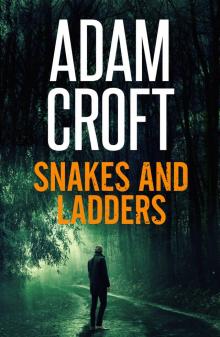 Snakes and Ladders
Snakes and Ladders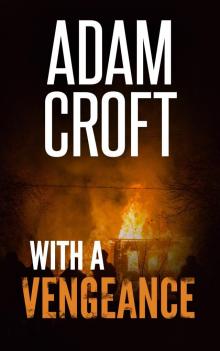 With A Vengeance
With A Vengeance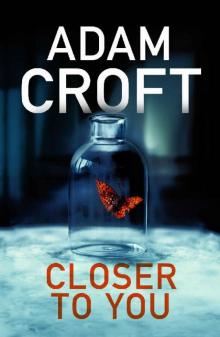 Closer to You
Closer to You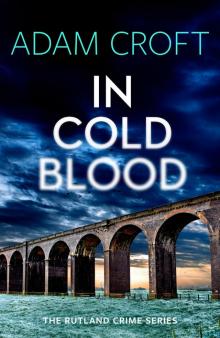 In Cold Blood
In Cold Blood Tell Me I'm Wrong
Tell Me I'm Wrong![[Knight and Culverhouse 09] - In Plain Sight Read online](http://i1.bookreadfree.com/i/03/16/knight_and_culverhouse_09_-_in_plain_sight_preview.jpg) [Knight and Culverhouse 09] - In Plain Sight
[Knight and Culverhouse 09] - In Plain Sight Dead & Buried
Dead & Buried Too Close For Comfort
Too Close For Comfort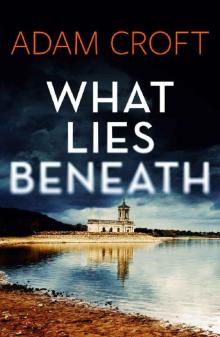 What Lies Beneath (Rutland crime series Book 1)
What Lies Beneath (Rutland crime series Book 1)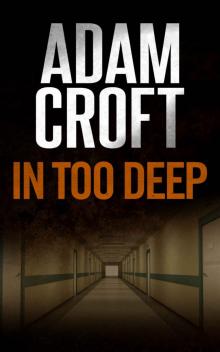 In Too Deep (Knight & Culverhouse Book 5)
In Too Deep (Knight & Culverhouse Book 5) Gone
Gone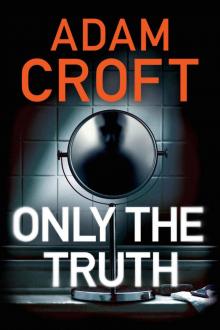 Only the Truth
Only the Truth Kempston Hardwick Mysteries — Box Set, Books 1-3
Kempston Hardwick Mysteries — Box Set, Books 1-3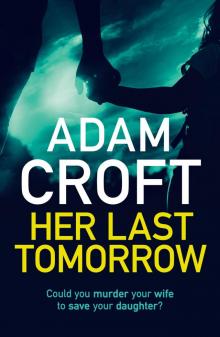 Her Last Tomorrow
Her Last Tomorrow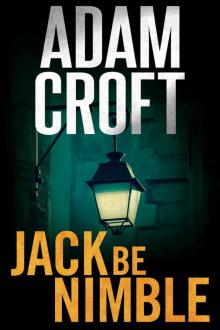 Jack Be Nimble (Knight & Culverhouse Book 3)
Jack Be Nimble (Knight & Culverhouse Book 3)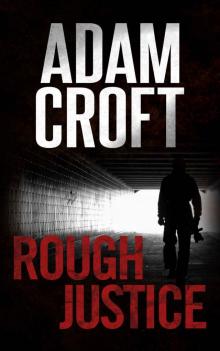 Rough Justice (Knight & Culverhouse Book 4)
Rough Justice (Knight & Culverhouse Book 4)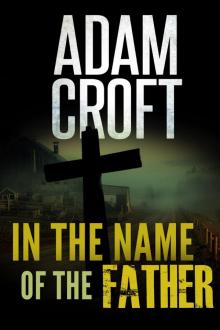 In the Name of the Father
In the Name of the Father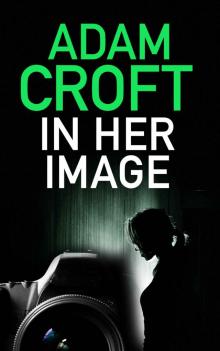 In Her Image
In Her Image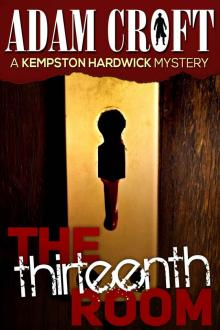 The Thirteenth Room (Kempston Hardwick Mysteries Book 4)
The Thirteenth Room (Kempston Hardwick Mysteries Book 4)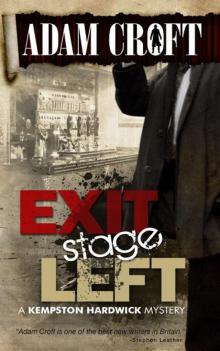 Exit Stage Left (Kempston Hardwick Mysteries Book 1)
Exit Stage Left (Kempston Hardwick Mysteries Book 1)